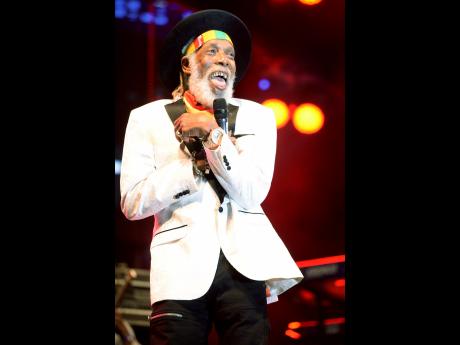Finding the right festival formula ... for Reggae Sunsplash's reincarnation
Like the rise of a phoenix from the ashes, the owner of the acclaimed Reggae Sunsplash trademark is shaking off the dust and flying into the New Year with a plan to reincarnate the festival.
In light of the genre's success and recognition, including its inclusion in UNESCO's list of protected cultural treasures, Kenny Benjamin of the Guardsman Group (part of the team reviving the festival) thinks it is the right time to bring back one of the original events that not only featured some of the greatest reggae entertainers of all time, but also exposed a diverse register of talents who proceeded to have successful careers. Dub poet Mutabaruka, British band Steel Pulse, and dancehall act Yellowman are just a few.
Over the past five years, the need for local festivals has been part of the discussion surrounding the tenets on which the creative sector is anchored. And while numerous projects intended to strengthen the distinctive reggae legacy are under way, industry professionals are in agreement that there is room for improvement. While Jamaica is the birthplace of reggae, the most popular reggae festivals are hosted outside of the country - Spain's Rototom Sunsplash, Germany's Summerjam, Reggae Sun Ska in France, and as far as the western Pacific for the One Love Jamaica festival in Japan.
According to Suncity's Steve Billings, taking the time to plan the return of Reggae Sunsplash is a step in the right direction. "The return will impact the festival scene, but it will be based on the uniqueness of the offering, he said. He added, "The truth is, we do not need a duplication of a Rebel Salute or a Portmore Music Fest, so with that, Reggae Sunsplash will have to establish its own identity."
Billings continued, "I believe the formula to surviving in this climate is ensuring that the planning and promotion team has the same objective. From the sponsors to the persons setting up the venue, they must be doing it for the love and advancement of the culture, and not just the money."
The last staging of Reggae Sunsplash, in 2006, went out with less of a bang than it did in previous years.
Choosing headliners
Third World guitarist/cellist Cat Coore told The Gleaner that festivals like Reggae Sunsplash are always a great undertaking.
"Sunsplash was great in terms of it highlighting those greats and rising talents, but now that the climate is different, there will have to be changes, and [unlike other industry people], I am not certain if there is a specific formula to revive it and make it survive other than putting your all into keep something of that stature going," Coore said.
The inaugural Reggae Sunsplash, held for one week in June 1978 (at Jarrett Park in Montego Bay), was headlined by Jimmy Cliff and featured Third World, as well as John Holt, Peter Tosh, The Heptones, and Jacob Miller alongside Inner Circle. Some of these entertainers continue to be regular performers on festival stages around the world.
Manley Augustus Buchanan, the reggae dub deejay more popularly known as Big Youth, agrees, saying, "Reggae Sunsplash was the breakout point for many of us."
Big Youth says that music festivals are about much more than just music. The culture, the crowd, and the overall experience are all factors that make a music festival memorable, and to the entertainers, it is a platform to share their love of whatever genre they perform and connect with the people. But for most festival followers, the headlining acts are what allow a festival to stay ahead of the competition. "Choosing the right acts means a mixture - to have a great line-up, it must include stellar headliners that will stick to roots, pay tribute to the veterans, and offer something new and genuine to the energy."
Learn the landscape
Tony Rebel, originator of Rebel Salute, believes that like him, many of the recording artistes who looked forward to performing on stages like Sting and Reggae Sunsplash as youths have accomplished that, and the objective is now changing.
"There is space for more festivals, but in order to properly come back and survive the climate, the organisers must learn the landscape in order to navigate it," he said.
He reasoned that any organiser developing or trying to reinvent a festival must do it from the perspective to support the genre as an injection to the music, as well as the culture.



